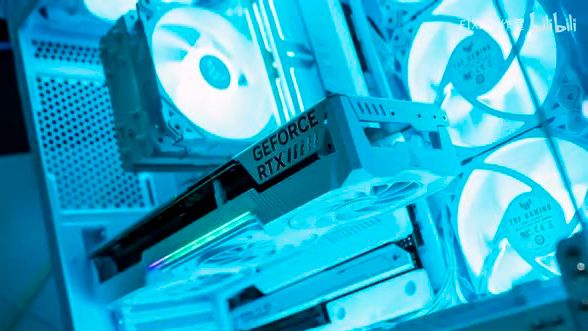Asus Reportedly Mass Producing Cable-Free GPUs

Asus' connector-less graphics card concept could soon become a reality. If the initiative takes off, the best graphics cards may not need power cables anymore. Demanding DIYers will surely love the idea since it'll help reduce cable clutter.
One of the most impressive highlights at the Asus booth at Computex 2023 was a prototype GeForce RTX 4070 without external power connectors. The graphics card didn't have the conventional 8-pin PCIe connector or the novelty 16-pin power connector, which has already gone through a quick revision for improved safety. Nonetheless, the graphics card doesn't magically draw power out of thin air, but a proprietary connection, which is one downside to Asus' design.
Instead of PCIe power connectors, Asus implemented a custom connector called the "GC_HPWR" connector that takes after a PCIe x1 connector. The GC_HPWR connector resides beside the PCIe 4.0 x16 connector. The custom slot is essentially a passthrough solution. As opposed to the 16-pin power cable connecting to the graphics card, it plugs into a connector on the back of the motherboard where the power passes through the slot to the graphics card. As a result, the graphics card will not function on a typical motherboard. It requires a proprietary expansion slot on upcoming Asus motherboards with the BTF (Back To Future) design, where the power connectors are behind the motherboard.
Bilibili content creator Eixa Studio, who recently attended Bilibili World 2023 exhibition in Shanghai, China, claims that Asus will start mass production of the connector-less graphics card in the Fall so that retail products may hit the market before the end of the year. While we've already seen the GeForce RTX 4070 Megalodon and TUF Gaming Z790 BTF with a black theme, Eixa Studio saw a new white variant of the same GeForce RTX 40-series graphics card and an upcoming TX Gaming B760-BTF WiFi motherboard for Intel Raptor Lake and Raptor Lake Refresh processors.
Due to the design and extra components required, the connector-less graphics cards and matching BTF motherboards will likely come with a slight premium compared to standard hardware. The million-dollar question is whether the higher price tag can convince consumers to jump on Asus' bandwagon. The cable-free design offers no performance benefits other than making your build look cleaner and avoiding the 16-pin power connector meltdown disaster.
Get Tom's Hardware's best news and in-depth reviews, straight to your inbox.

Zhiye Liu is a news editor, memory reviewer, and SSD tester at Tom’s Hardware. Although he loves everything that’s hardware, he has a soft spot for CPUs, GPUs, and RAM.
-
emike09 I like the idea, particularly if other manufacturers jumped in on the standard, and if there could eventually be enough power delivery to support xx80/90 series. Nice clean look and less cables to get managed properly.Reply -
JTWrenn While the idea of doing it on their own is horrible...the idea of the next pcie standard for 16x having a power delivery system that doesn't require a cable sounds great.Reply -
tamalero Reply
Maybe, but then.. ASUS will now have the NUC market on their hands since Intel left.Kamen Rider Blade said:I think this is going to fail miserably.
So they might leverage this connector for a better cableless dedicated gaming nuc. -
WrongRookie Even if this doesn't work out, I applaud Asus cause they are the ones that innovate the most.Reply -
YSCCC It might work better for the ASUS few years ago, but being a proprietary interface, from a brand usually priced higher than others, and the recent AMD melting gate issue.. I doubt any meaningful customer base will pay for thatReply -
thestryker Generally speaking I like the idea of eliminating the cabling, but this doesn't really seem like a particularly useful idea without it being an industry standard. We have the same issue with the whole cabling on the back of the motherboard thing. This would have been a good time to switch to an ATX12VO setup while they were at it.Reply